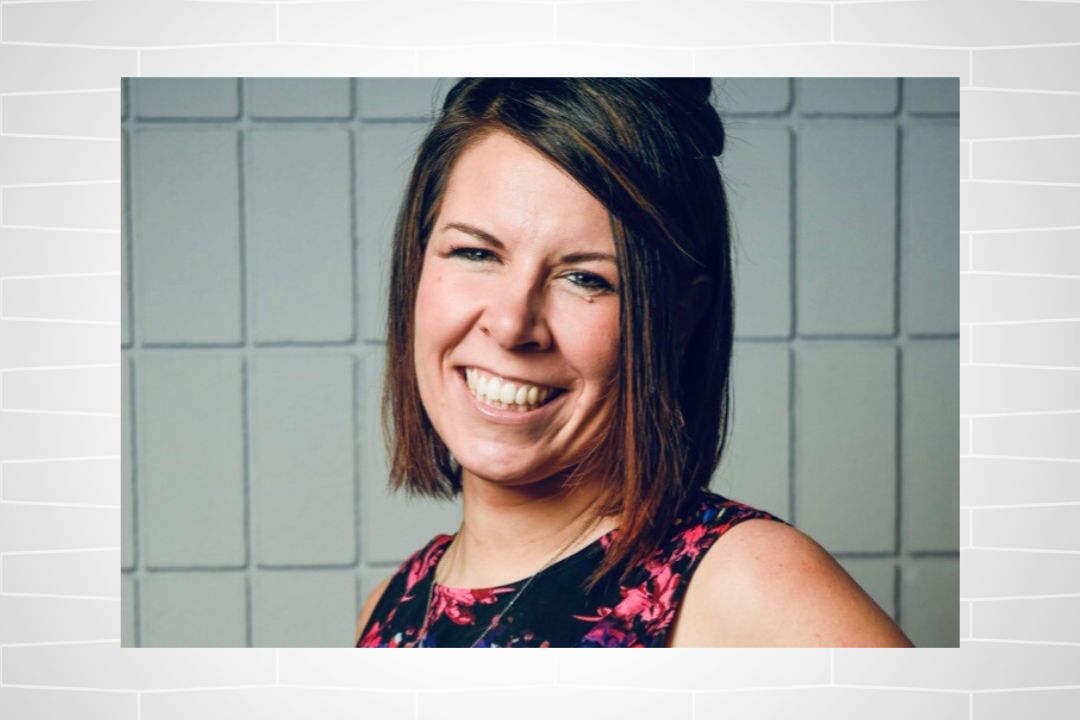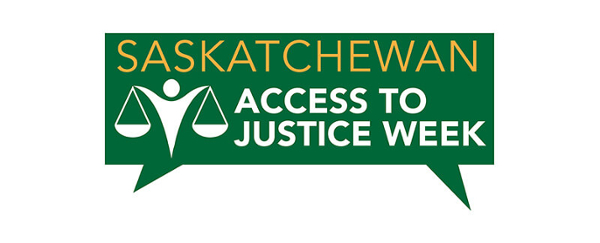
CREATE Justice director talks Access to Justice on Evan Bray Show
Brea Lowenberger of CREATE Justice spoke to 650 CKOM radio during 2024's Access to Justice Week in Saskatchewan.
Evan Bray, host of The Evan Bray Show on 650 CKOM, spoke to Brea Lowenberger on Wednesday, October 30, about Access to Justice Week.
Lowenberger is the director of CREATE Justice (Centre for Research, Evaluation, and Action Towards Equal Justice) at the University of Saskatchewan College of Law.
Evan Bray: In Saskatchewan, it's Access to Justice Week. This is a week where the focus is on how average people can be more included and easily navigate our legal system. Brea Lowenberger is the director of CREATE Justice. This is a group that is focused on making justice more accessible in a variety of ways in our province. Thanks for taking the call, Brea.
So you know we always say the justice system is equal for everyone. But a week like this is important for many reasons. Talk about what it is we try and achieve during Access to Justice Week.
Brea Lowenberger: Access to justice may be a term that folks don't recognize. It has been identified by our Canadian Bar Association and Supreme Court of Canada as the most significant law-related social issue in Canada.
I often explain the issue of access to justice as there being a justice gap. There is some, albeit not nearly enough, assistance for people in poverty. And those who are high-income earners can afford and access legal services. But there's this growing gap; the issue has extended to a lower middle-class problem, where people simply can't afford, or for various reasons, can't access the justice system.
Data-driven change is at the heart of my work so what are we talking about in terms of numbers? Almost half of Canadians over 18 will experience at least one civil or family justice problem over any given three-year period, and 80 percent of legal problems are actually not being addressed in the legal system.
And so CREATE Justice, among many partners, is involved with Access to Justice Week. It actually hooks up to a national initiative, with this year the theme being Increasing Impact: Collaboration, Change and Capacity Building.
The reason behind the week is like it sounds: to create a more inclusive and easier-to-navigate legal system for the average person. The week has been around for nine years now and it's intended to highlight existing and new initiatives that can help the public get their legal needs met.
This can be anything from trying to get a will done to (getting help if people are) losing housing, to trying to leave an abusive relationship, and family matters. People are touched in a lot of ways by our civil and family justice system.
Evan Bray: We talk about reducing barriers. What would be an example of a barrier that is inhibitive of people understanding the system or even having access to it?
Brea Lowenberger: A barrier may be literacy issues and filling out a form. We see forms in a variety of areas in our family justice sector, for example. So the type of work I’d be doing with collaborators, with our justice system stakeholders, and engaging students at the law school could be, in the past for example, we've looked at ways to improve the ability to fill out family law forms. So there may be literacy issues, there may be cost barriers. In the case of family justice there may be interpersonal violence issues. It goes from trying to improve access to the existing forms and processes that are out there, to really taking a hard look at the policies and the systems in place and trying to evolve those to meet the needs of the public that the justice system serves.

Evan Bray: Often when people are trying to access information, documents, and understand policies (and) process, they’re doing so while something is transpiring in their life and usually it's a very emotion-filled experience, whether it's loss of a loved one, buying a house, trying to get out of a domestic situation. How often do you find that that adds to the complication of what's happening and unfolding for people?
Brea Lowenberger: Oh, 100 percent that’s so true. And so we're fortunate in Saskatchewan to have a number of free, local services for folks that are looking to navigate the system. And of course, we have many amazing lawyers in the province but when people are starting out and trying to get help, we do have some of those frontline agencies like our Public Legal Education Association of Saskatchewan, our Family Law Information Centre at the Ministry of Justice, Legal Aid Saskatchewan, Pro Bono Law Saskatchewan, and other organizations such as Elizabeth Frye, John Howard Society, CLASSIC in Saskatoon that are all really important staples in our community to help people at the onset get the help they need and get them on a pathway to resolving their dispute.
Evan Bray: You just brought up PLEA, which is Saskatchewan's Public Legal Education Association. They had nearly half a million page views last year on their website. Does that tell us the magnitude of the problem, or the number of people that are searching for answers, when it comes to justice-related issues or interpreting the law?
Brea Lowenberger: Absolutely. We’re so fortunate to have PLEA in Saskatchewan. They're an amazing organization. The top areas that they saw in 2023 – wills and estates, power of attorney, healthcare directives, renting a home, abusive relationships and family justice – those issues actually coincide with the recent study we did at CREATE Justice on unmet legal needs in the province.
It was family law, housing, criminal issues that were at the top of that list as well. The magnitude of the issue and the unmet needs are really evident through those stats and those studies. Our work continues to improve the system to better meet the needs of the public in Saskatchewan. And you know that the most challenging part of changing any system is that the current system needs to run. We're not able to just stop, like a factory, and take a week off.
There's so many stakeholders from our courts, to our government, to our frontline agencies, and our regulator who are all working really hard to continue to improve the system while business is going on as it has.
Evan Bray: How do you decide what CREATE Justice is going to take on in terms of projects?
Brea Lowenberger: CREATE is involved with coordinating a group called the Saskatchewan Access to Justice Network, which seeks to identify and, through information exchange, act on improvements in the system.
In any system, there's a number of different actors that need to change within and among in order for improvements to be made. One example is a new family justice-related project that we're taking on that's looking at improvements based on well-being and promoting well-being in transformation of the family justice sector.
Another is a collaboration among many organizations called the Sask. Access to Legal Information project that works with PLEA and other organizations, empowering frontline community agencies across the province. This may include folks at public libraries, organizations like Open Door and others who are hearing people's potential issues - that have legal components to them - and empowering those trusted intermediaries or community workers.
Evan Bray: This has been a great chat this morning. Where would you direct people if they've started a journey of trying to understand and unwind something within Sask justice?
Brea Lowenberger: I would recommend people start at the plea.org website. They have a variety of different resources in different areas. And we have a variety of events for A2J Week. We're hosting a Law Fair on Saturday, November 2. It’s happening from 11 to 4 pm in person at the Regina Public Library. That event will feature education sessions on common areas of law, in addition to hosting free family law clinics and a trade show featuring relevant local and provincial organizations. No registration is required, it’s free legal information and assistance.
Evan Bray: I know you even had an event for people interested in entering law as a profession.
Brea Lowenberger: Part of increasing access to justice is making sure we have enough lawyers out there. I grew up in a small town and the need for lawyers across the province, not just in our urban centers, is critical as well. Very grateful to the leadership of our law students (Pro Bono Students Canada USask Chapter) and organizations in hosting that event to try to entice different folks to head into the career of law.
The full interview was edited for length and clarity.
